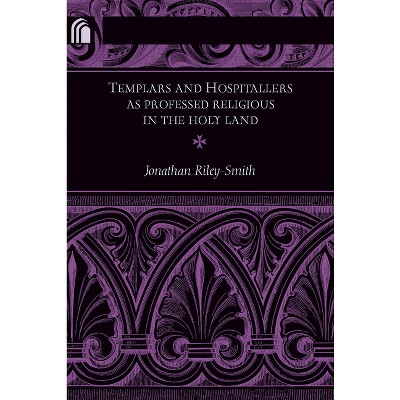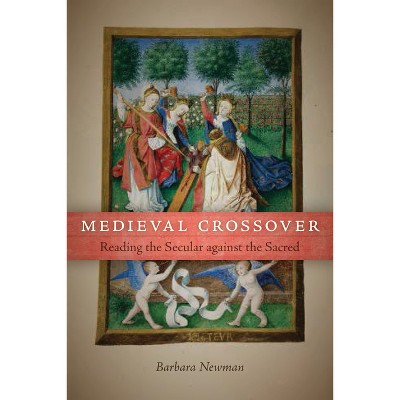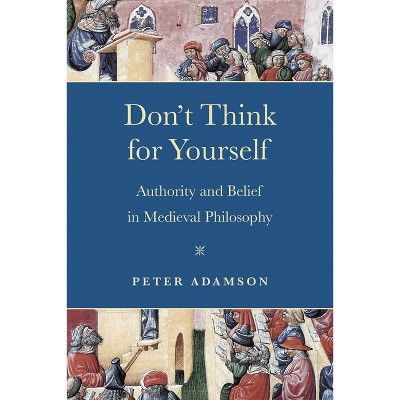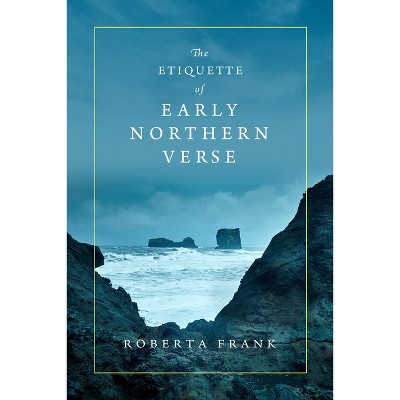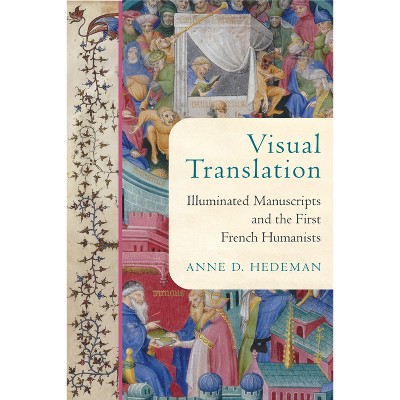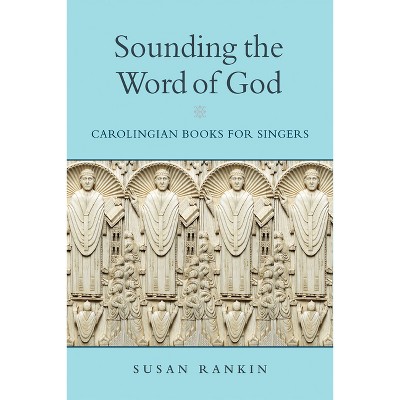Dominicans and the Pope - (Conway Lectures in Medieval Studies) Annotated by Ulrich Horst (Paperback)

About this item
Highlights
- These essays examine papal teaching authority from Thomas Aquinas in the thirteenth century to the Dominican School of Salamanca in sixteenth century Spain.
- About the Author: Ulrich Horst, O.P., is emeritus senior professor and director of the Grabmann Institute at the University of Munich.
- 146 Pages
- Religion + Beliefs, Christianity
- Series Name: Conway Lectures in Medieval Studies
Description
About the Book
This work outlines the predominant, official, and evolving positions of the Dominicans on the teaching authority of the pope. Horst shows the differences within the order on the topic and from other orders such as the Franciscans and the Jesuits.
Book Synopsis
These essays examine papal teaching authority from Thomas Aquinas in the thirteenth century to the Dominican School of Salamanca in sixteenth century Spain. Fr. Ulrich Horst, O.P., an internationally renowned authority in historical theology, describes the various debates between the Dominicans and other orders over papal teaching authority, especially whether there should be limits placed on papal authority and, if so, what they might be.
Horst reviews in a brief and masterful fashion the teaching of medieval and Catholic Reformation Dominican theologians about the teaching authority of the pope. He succinctly shows the differences within the order on the topic and makes clear how Dominicans tended to differ on the matter from theologians of other orders such as the Franciscans and, later, the Jesuits, whose views would eventually lead to the proclamation at Vatican I.
In the first chapter, Horst discusses the canonization of St. Thomas, the lecture on the gospel of St. Matthew, and Summa Theologiae II-II 1, 10. Horst then examines the road to conflict under Pope John XXII and the position of a number of the Dominican theologians such Hervaeus Natalis, John of Naples, and Guido Terreni. In the last chapter, Horst brings to light the contributions of Francisco de Vitoria, Dominicus Sots, Melchior Cano, and Juan de la Peña, among others.
Despite his distinguished career as a medievalist, little of Horst's imposing scholarly corpus has been translated into English. These lectures, then, mark an introduction of this formidable scholar to a wider audience.
Review Quotes
"Based on a lifetime of research and writing, these three lectures of Father Ulrich Horst, O.P., provide a masterful overview with copious references of the predominant, official, and evolving positions of the Dominicans on the teaching authority of the pope. While always supportive of the jurisdictional primacy of the papacy upon which their own faculties to preach, teach, and render pastoral care depended, Dominican theologians beginning with Tommaso d'Aquino initially held that the Roman Church, rather than the pope personally, was infallible. Only in the sixteenth century with the need for prompt and certain responses to the Protestant challenge did some members of the Dominican School of Salamanca (Melchor Cano, Juan de la Peña, Domingo Báñez, etc.) teach that the pope cannot err. The Jesuits (Gregorio de Valencia, Roberto Bellarmino, etc.) adopted and expanded on this teaching which triumphed at Vatican I despite the efforts of Dominican cardinal Filippo Maria Guidi to defend the earlier Dominican position that the pope must first properly consult before defining. Father Horst has thus demonstrated how nuanced, varied, and slowly evolving was the teaching of the Dominicans on papal authority." --Nelson H. Minnich, The Catholic University of America
"For many years Ulrich Horst has published enlightening studies of historical ecclesiology. . . . In this case, Professor Horst has focused on Dominican viewpoints on papal teaching authority. . . . These lectures on the Dominican view of papal authority can be read with profit by anyone interested in historical ecclesiology." --The Catholic Historical Review
"One of the best expositions of the history of the doctrine of infallibility to emerge in the last five years, ranking it with the works of Brian Tierney or Francis Oakley. . . . This is an example of a mature scholar in absolute command of his subject matter. It will be highly valuable for church historians, graduate, and seminary libraries." --Catholic Library World
"There is deep learning and much to be learned from the master of this slim volume." --Speculum
About the Author
Ulrich Horst, O.P., is emeritus senior professor and director of the Grabmann Institute at the University of Munich. He is the author of a number of books, including Papst, Konzil, Unfelhbarkeit and Unfehlbarkeit und Geschichte.






